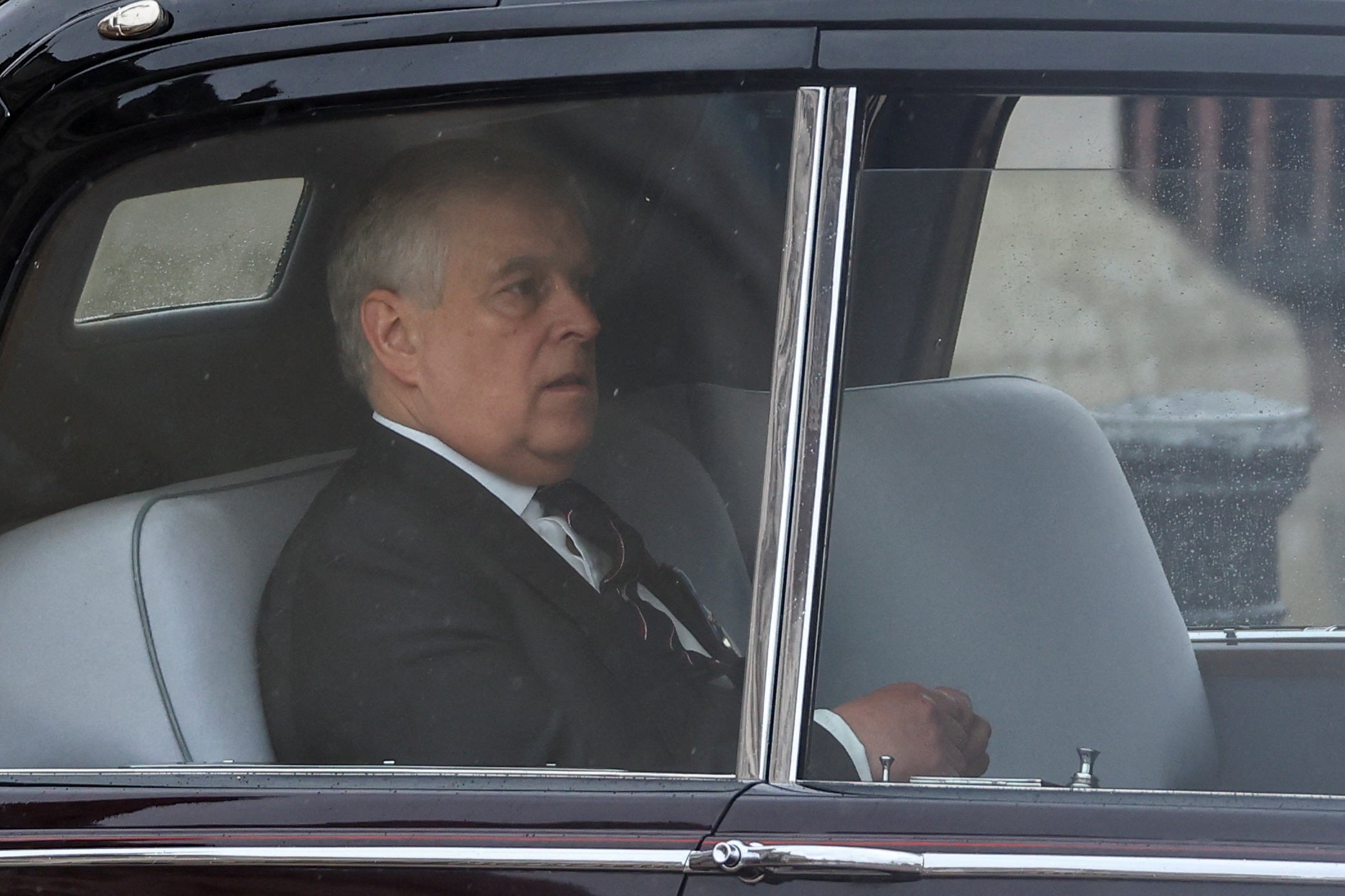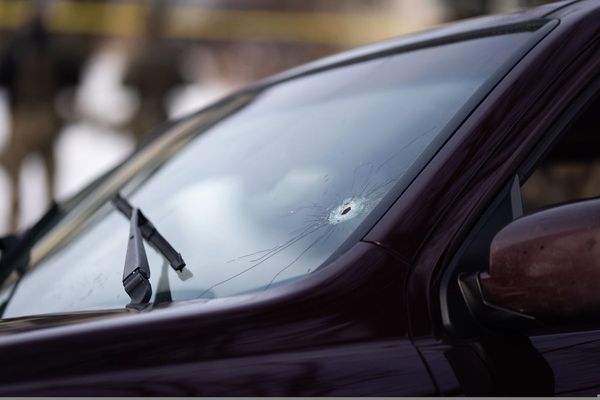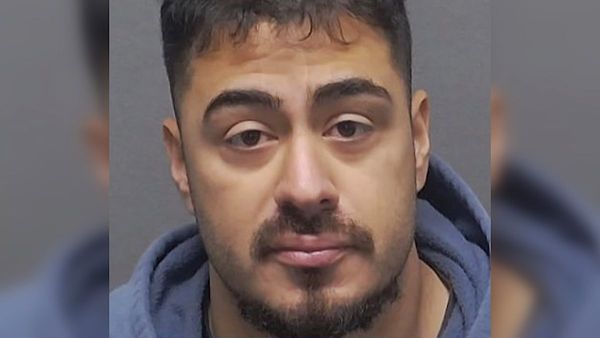
Police have threatened anti-monarchy protesters with arrest if they shouted about “Prince Andrew and the sex stuff” or chanted “anything that may be deemed offensive”, The Independent has been told.
One demonstrator claimed officers warned them they “might get shot at” if they blocked the coronation procession on Saturday.
Harry Stratton, who was wearing a yellow “Not My King” hoodie, told The Independent: “We were told [by police] if anyone gets in the way of the procession you might get shot at.
“They said ‘slogans, chanting - go for it - but if you start saying Andrew and the sex stuff we will start arresting’.”
The comment appeared to be a reference to Prince Andrew’s friendship with sex offender Jeffrey Epstein, and the financial settlement he reached in a US civil sexual assault case brought by Virginia Giuffre last year.
Prince Andrew was booed by members of the public as he was driven down The Mall to his brother’s coronation, where he did not have a formal role after stepping down from royal duties in 2019.
Dozens of anti-monarchy and environmental protesters have so far been arrested, on suspicion of “conspiracy to cause public nuisance”, breaching the peace and possessing articles to cause criminal damage.

Mr Stratton, 30, said he saw several organisers of a rally organised by the Republic group being arrested on Saturday morning, adding: “They won't tell us why they arrested them or where they're taking them.”
Elsewhere in Westminster, another group of anti-monarchy protesters told The Independent police said they “can’t shout anything that may be deemed offensive”.
Sean, who did not want his surname printed, said: “It’s so vague. We aren’t able to get into place to protest as police aren’t letting us in … but that was our designated place to protest given to us by police.”
He accused the police of “manipulating the law” and threatening to arrest people “for saying something you don’t agree with”. “It’s archaic and outrageous, it doesn’t fit with modern society,” he added.

A spokesperson for the Metropolitan Police said they could not immediately verify what “words of advice” officers may have given on the ground.
The warnings are believed to have been issued under the Public Order Act 1986, which was also used against hecklers during September’s proclamations for King Charles III.
The law makes it an offence to use “abusive words or behaviour” or “display any writing, sign or other visible representation which is threatening or abusive, within the hearing or sight of a person likely to be caused harassment, alarm or distress”.
It was used to charge Symon Hill, who shouted “who elected him?” at a proclamation ceremony in Oxford last year, but the prosecution was dropped before he was due to face trial in January.
Alastair Binnie-Lubbock, a councillor from the east London borough of Hackney, said he had hidden a flag because he felt too “intimidated” to put it up.
“I was a bit worried I’d get arrested,” he added. “The police said they've got a very low tolerance to protest and that's not what you want in a democracy.”

The Metropolitan Police had said it would facilitate anti-monarchy demonstrations unless they contravened existing laws, but said officers would have an “extremely low threshold” for protests during the celebrations.
Deputy assistant commissioner Ade Adelekan said officers would not intervene over someone merely “holding a placard” in London.
“Protest is lawful,” he told a press conference on Wednesday. “If at any point any protest, either during the coronation or afterwards, moves from being a protest that is lawful into criminal intent then you will see extremely swift action from us.”
A controversial package of new laws came into force when the Public Order Act received royal assent on Tuesday, making it illegal for protesters to lock onto objects or each other, or possess items for that purpose.
The law created a new threshold for police intervention against “serious disruption”, including hindrance to journeys, deliveries and services, allowing the arrest of demonstrators who break any conditions imposed.
Another controversial package of protest laws brought in last year made “public nuisance” a new criminal offence.
The policing and security operation around the coronation, codenamed Golden Orb, is one of the largest ever seen in Britain, with 11,500 police officers on duty on Saturday.







